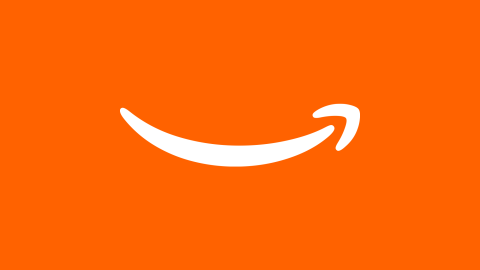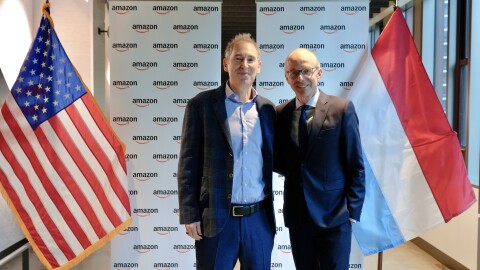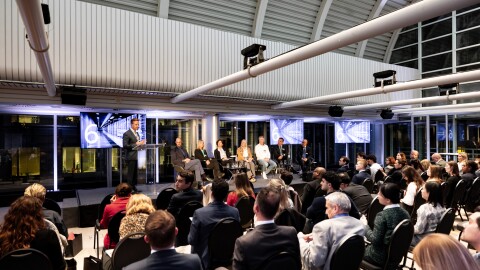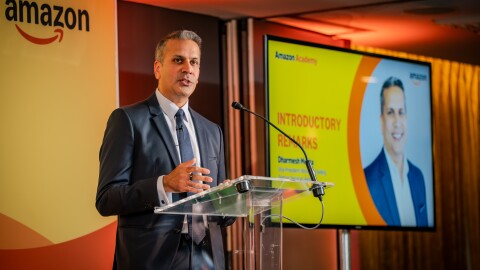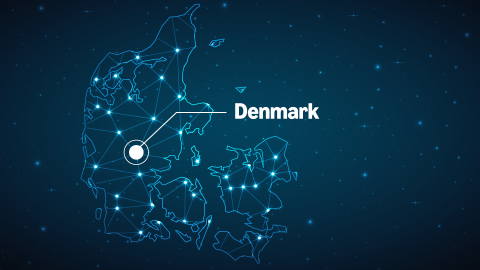Amazon and the European Commission share a common vision – to build an EU fit for the digital age. We know first-hand the power of technology to improve the lives of Europeans and deliver real public benefit for countries in the EU. And we agree with Commission President Ursula von der Leyen that the digital transition is critical to unlocking further economic growth and job creation.
We are playing our role in the EU’s digital success. To date, we directly employ more than 200,000 people across the continent and support 225,000 European small and medium enterprises through our stores. We have spent €142 billion to grow Amazon across the EU since 2010 and our AWS business investments in cloud infrastructure remain critical to the Commission’s Digital Decade targets. And we are proud to support European innovation, with teams across several development centers working on cutting-edge technology for the benefit customers, including AI, robotics, and machine-learning.
We are excited about the EU’s future and stand ready to play our part and continue to work in partnership with others. Key to the EU’s success has been open digital borders and a willingness to trade ideas with, and support, companies like Amazon, as well as face outwards to the wider digital world. As we all know, technological innovation and progress doesn’t happen in isolation. Innovation in tech is a global pursuit; a team effort that relies on cross-border flows of information with rules and regulations that facilitate a positive exchange of ideas and support companies innovate at a global level.
The D9+ Group – 12 EU countries at the forefront of the digital economy: Belgium, Czech Republic, Denmark, Estonia, Finland, Ireland, Luxembourg, the Netherlands, Poland, Portugal, Spain and Sweden – meet in Poland this week to discuss driving this agenda forward and we have four suggestions for inclusion:
1. A strengthened digital single market. Amazon is proud to be a champion of the EU Single Market and we have further priorities to contribute to achieving its full potential. At the heart of the EU’s agenda should be a focus on leveraging and enhancing the Single Market’s inherent strengths. Abolishing barriers to the Single Market, particularly for digital goods and services, will bolster Europe as an attractive investment destination and support the digital transformation of the EU economy, its SMEs and consumers.
2. Delivering the Digital Decade. The EU Digital Decade sets out a vision for digital transformation by 2030. This is the lens through which the EU should consider any new policies impacting the digital ecosystem; it should be evidence-based, customer centric, technology agnostic and safeguard EU and member state digitalization targets. This applies to current discussions on the EU’s connectivity infrastructure needs, including the types of infrastructure and amount of investments needed to lead the digital transformation in the coming years.
3. Stimulating investment. At Amazon, there are a number of ways we are investing across our business to enhance EU resilience, including in cloud and logistics infrastructure, satellite connectivity, cyber security, digital skills, emerging technologies (from quantum to AI), and through our Climate Pledge, which includes ambitious commitments to renewable energy purchases and transport decarbonization. The EU can further stimulate such resilience-enhancing investments by allowing the digital sector time to adapt following a period of sweeping EU regulation. Recently adopted EU measures come with significant compliance costs and administrative burdens which impact the ability of companies to invest in Europe and to support European industrial partners and SMEs.
4. Transatlantic cooperation. The EU and US share an unrivalled economic relationship. American companies with substantial operations in the EU, including Amazon, are some of the strongest links in this chain. There are significant mutual opportunities in transatlantic cooperation, and a strong EU is one that is open to the US, and vice versa. Ireland’s Taoiseach Leo Varadkar put it best in a recent speech to the US Chamber of Commerce, that measures taken on one side of the Atlantic should complement those taken on the other – not risk each other’s progress. He added that the UK’s departure from the EU means countries like Ireland have a greater responsibility to speak up for free trade and openness and to work with like-minded countries, like those of the D9+ Group, to advance this. Across the Atlantic it is crucial to find common ground on innovation-friendly policy issues from data rules to cybersecurity, connectivity and AI. The upcoming EU-US Trade & Technology Council providers provides a forum to make progress.
We believe that all countries stand to benefit from open digital borders, including the D9+ member states, especially because they are small and open economies, dependent on open borders. By rejecting restrictive rules driven by ’strategic autonomy’, EU countries will further benefit from intensive integration and exchange of knowledge with non-EU firms, which in turn supports EU efforts to build greater resilience and accelerate the digital and green transitions.
As we look towards European Parliament elections and a new College of European Commissioners next year, the D9+ Group can take a leadership role for driving this digital agenda and must champion policies in the EU based on innovation, competition and openness, and strengthen the relationship between the EU and likeminded partners such as the US.
And it’s not just us who take this view. The European Centre for International Political Economy (ECIPE) agrees that the D9+ countries should take on greater leadership for the development of EU digital regulations and the broader policy for an open digital economy. In a recent report they write: ’D9+ countries have a key task in front of them: to be more proactive in developing new ideas for how European policy should evolve, advance the economic reforms that are necessary for deep digital integration, and ensure that the voice of digitally open economies is heard around the negotiation tables when policy is decided in Brussels.’
By encouraging open data flows and trade and ensuring harmonization of EU tech standards with the World Trade Organization (WTO) principles, the D9+ Group really can help build a Europe fit for the digital age. Amazon seeks to contribute to these discussions and to play a part in the solutions.
Lucy C. Cronin is the Vice President, EU Public Policy, Amazon








